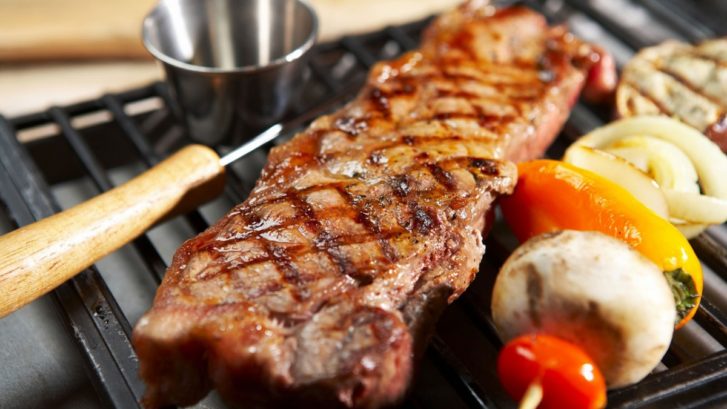Is Grilling Meat Dangerous to Your Health?
The Fourth of July is nearing, one of the three big holidays known for barbecues, along with Memorial Day and Labor Day. The centerpiece of all the picnics and backyard parties nearly always includes the distinctive aroma of various grilled meats wafting over the festivities, whetting appetites for whatever’s “on the barbie.”
But without meaning to throw cold water on your charcoal, your local doctors at MD 2.0 in Jupiter, Florida, would like to provide a few tips on how to enjoy your BBQ without endangering your health.
First, a bit of background. You may have heard—and it’s unfortunately true—that barbecuing meat may increase the risk of certain cancers. The blackened crust found on the grilled meat, known as “char,” is the dangerous part, containing the cancer-causing compounds heterocyclic amines (HCAs). The more HCAs the finished product has, the greater the risk of prostate, pancreatic, and colorectal cancer.
High grilling temperatures, as with indoor cooking at high temperatures, can trigger a harmful chemical reaction in cells called advanced glycation end products (AGEs), that cause inflammation and premature cell aging.
The smoke, of course, is dangerous as well. Resulting from the fat in the meat that drips onto the hot coals, it smells wonderful, but contains polycyclic aromatic hydrocarbons (PAHs) that result in damage to your lungs.
But don’t despair. There’s no reason to give up this all-American pastime. Your direct primary care doctors at MD 2.0 in Jupiter, Florida, recommend you just tweak your approach a bit, and enjoy!
1. Go lean
Lean meats won’t have as much fat to drip, thus limiting the resulting HCAs. When grilling chicken, remove the skin before placing on the grill.
2. Marinades are your friend
With less fat, you’ll want to marinate the meat to increase flavor and tenderness. Be sure to include some of your favorite herbs and spices, and whichever acidic tenderizing agent you prefer: vinegar, citrus juice, wine, beer, soy sauce, or the like.
3. Reduce grilling time
Meats that are pre-cooked and added to the grill to finish will still result in the barbecued flavor but will reduce HCA, AGE, and PAH exposure. So will grilling smaller pieces, because they cook faster.
4. Use safe handling practices
The usual kitchen rules still pertain on the grill: cook meat to the recommended temperature, keep refrigerated until ready to cook, wash hands after handling meat, and avoid cross-contamination with other foods.
4. Barbecue to your heart’s content
Just grill vegetables. They present none of the potential dangers of grilled meat.
Finally, a warning that has nothing to do with grilling itself: emergency rooms tend to see an increase of cases this time of year of patients who have pieces of wire embedded in their mouths or throats. The culprit? Wire brushes used to clean grills. The wires can dislodge and linger unnoticed on the grill, later becoming embedded in the grilled food. Carefully inspect the grill before use for this hidden danger, and discard old wire grill brushes.

